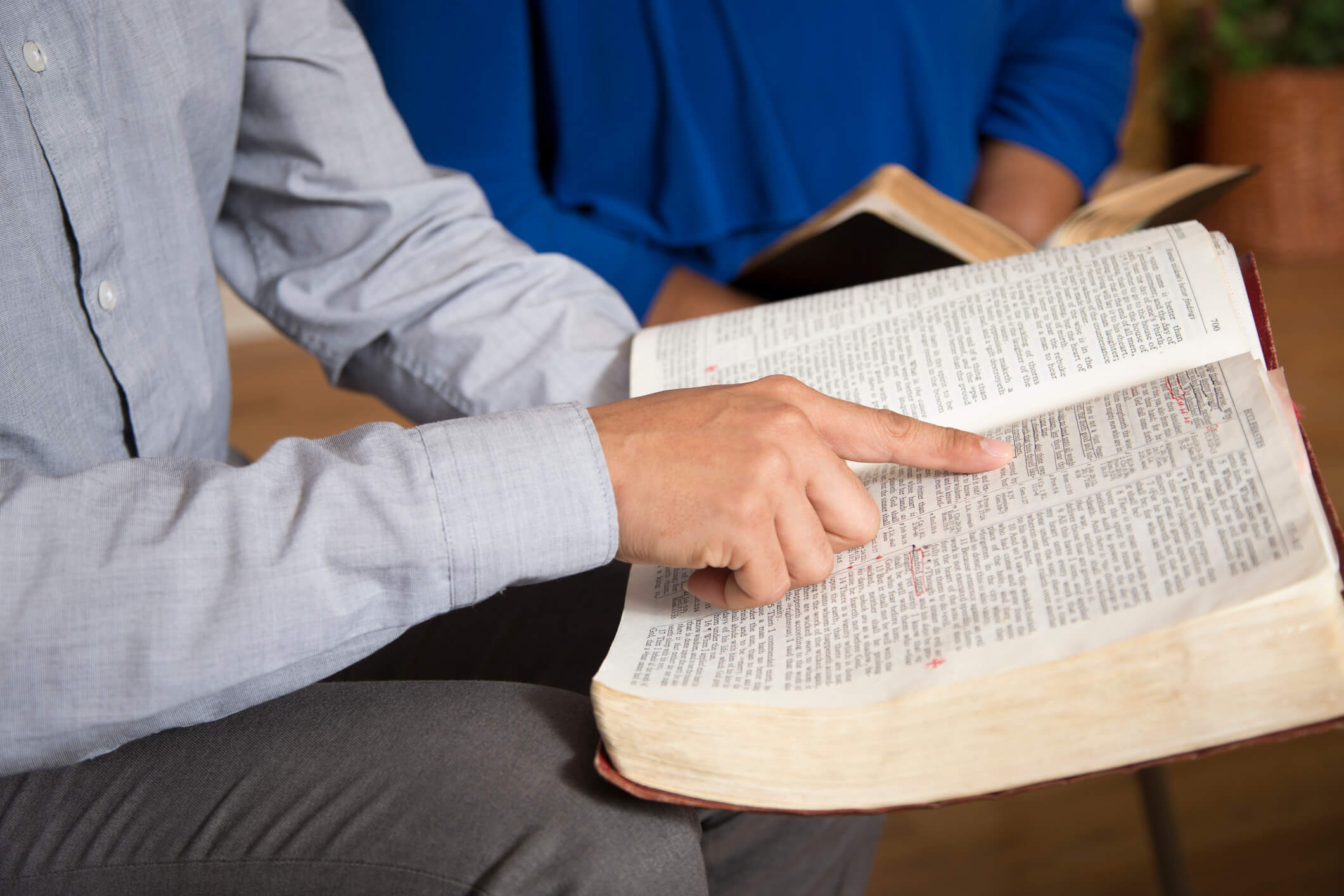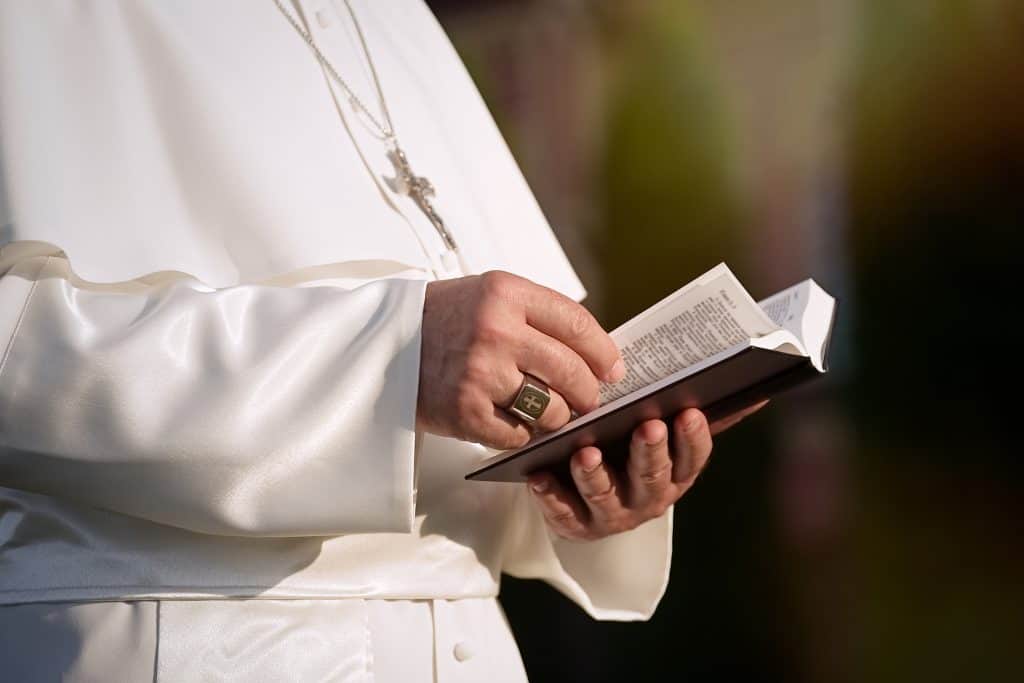At Covenant Eyes, we look to James 5:16 as one of the key biblical passages about accountability. Here it is: “Therefore, confess your sins to one another and pray for one another, so that you may be healed.”
But what does this verse tell us about accountability? If we look at verse 16 in its surrounding context, we find the main theme is actually prayer. But from this theme, we find a rich concept of accountability. Accountability functions as a component of effective prayer, and it’s an integral part of the Christian faith.
More than just a proof-text, here are three important truths from James 5 that should guide our accountability relationships.
Article at a Glance:
Accountability flows from prayerful activity.
Is anyone among you suffering? He should pray. Is anyone cheerful? He should sing praises. Is anyone among you sick? He should call for the elders of the church, and they are to pray over him, anointing him with oil in the name of the Lord. The prayer of faith will save the sick person, and the Lord will raise him up; if he has committed sins, he will be forgiven (James 5:13-15).
Verses 13-15 outline the range of experiences in the Christian life: suffering, happiness, sickness, and sinfulness. All these circumstances give opportunity for prayer.
However, James also corrects a common misunderstanding about how we should use prayer. We often think of prayer as a spiritual solution for specific problems, like a tool in the Christian’s toolbelt. “Oh, you’re struggling with porn? You should try praying more.”
But James doesn’t present prayer as a mere tool — something to try when other things don’t work. Rather, James teaches us to immerse every activity in prayer. James doesn’t offer prayer as an alternative to other tools, but as a way to approach every tool we use.
What does this mean? Of course, you should pray through your sorrows when there’s nothing else you can do. But don’t limit prayer to those times. Pray—with praise—in times of joy and laughter. Pray through sickness, even while you seek medical solutions (in biblical times, oil was used for its healing properties as well as spiritual significance).
And, very importantly, don’t forget to include other believers in your prayers. When dealing with sin and guilt especially, James describes prayer as a group activity. This is the essence of accountability: bringing others into our lives and revealing the truth about ourselves so we can become more like Jesus.
This point also implies another important truth about biblical accountability. While it includes confession of sin, it shouldn’t be limited to that. “Burden bearing” (Galatians 6:2) implies prayerfully sharing with one another in good times and bad.
Accountability is God-centered.
Therefore, confess your sins to one another and pray for one another, so that you may be healed. The prayer of a righteous person is very powerful in its effect. Elijah was a human being as we are, and he prayed earnestly that it would not rain, and for three years and six months it did not rain on the land. Then he prayed again, and the sky gave rain and the land produced its fruit (James 5:16-18).
James 5 shows us that each situation of our lives provides an occasion for different kinds of prayer. Prayer consistently supports us in every circumstance, especially when we pray with others. And Christian accountability means we share all these circumstances with our brothers and sisters in Christ.
Lest we miss the point, James distills the whole concept into one verse: confess your sins to one another and pray for one another. He goes on to describe a situation in which someone prayed effectively—the great Old Testament prophet, Elijah.
At first glance, this example shows little relation to the idea of accountability. After all, Elijah was praying about the weather. So why this prayer about famine and harvest?
James wrote this encouragement to early Christians who knew their Bible stories. If we turn to 1 Kings 18, we find Elijah confronting the king and the pagan priests—and holding them accountable—for their idolatry. Through Elijah’s prayer, God’s power over the forces of nature became known. “When all the people saw this, they fell prostrate and cried, ‘The Lord—he is God! The Lord—he is God!’” (1 Kings 18:39).
This tells us something else about the biblical purpose for accountability: it’s for reminding one another who God is and how we should respond to Him. Yes, that can include accountability for personal goals and behavior modification. That’s the point of having an ally in the fight against porn. But it transcends quitting porn. God ultimately intends accountability to show us His glory so we can experience Him more fully.
Accountability is a responsibility and privilege for believers.
My brothers and sisters, if any among you strays from the truth, and someone turns him back, let that person know that whoever turns a sinner from the error of his way will save his soul from death and cover a multitude of sins (James 5:19-20).
Lastly, verses 19 and 20 give us two concluding points about accountability: as believers, it’s both a responsibility and a privilege.
First, we have a responsibility to hold one another accountable. Just as Elijah the prophet brought accountability to the wayward people of Israel in 1 Kings 18, James tells us that we should seek to turn our wayward brothers and sisters back to the Lord.
(Galatians 6 gives us additional instructions about this responsibility; see our post Careful Burden-Bearing: Instructions for Allies.)
Second, it’s not just duty! Accountability offers the rich reward of seeing wayward sinners restored to Christ. We participate in the story of redemption as God’s instruments of truth and healing.
More than just giving us an accountability proof-text, these truths from James 5 show us how to pursue accountability according to God’s plan.










0 comments.